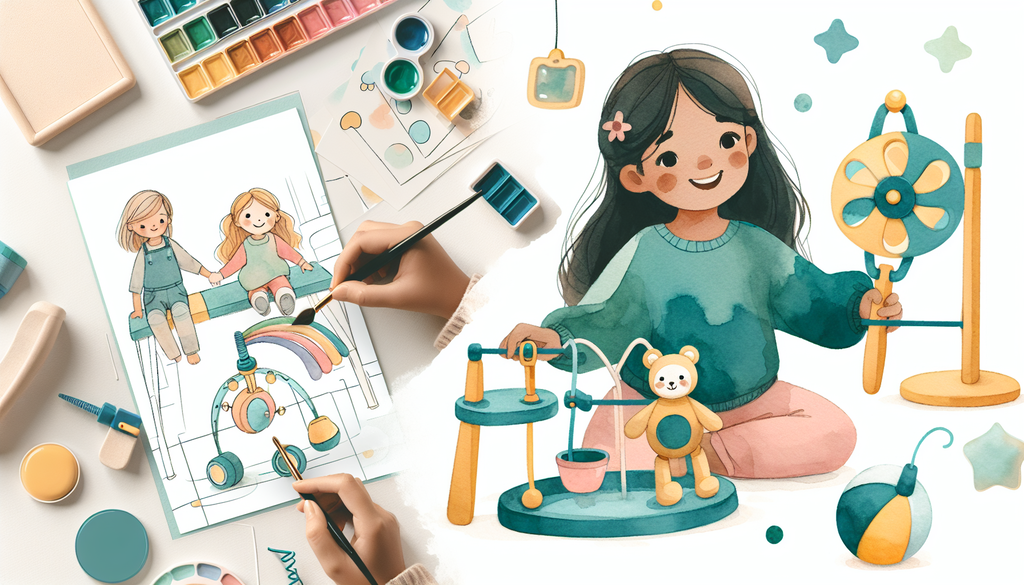Innovative Play: Adaptive Toys for Children with Special Needs

As the inclusive toy market expands, more and more parents, caregivers, and educators look forward to engaging children in play with adaptive toys. As the name suggests, these toys have been intentionally designed or adapted for children with special needs, including those with sensory sensitivities, physical disabilities, intellectual disabilities, neurodiverse conditions, and more.
The importance of play in children’s development is well-documented, serving as a crucial tool for learning, social connection, creativity, and emotional growth. For children with special needs, play can also be therapeutic, helping them enhance their fine motor skills, cognitive abilities, socio-emotional skills, and sensory processing skills.
In this article, we will review some adaptive toys that ware both fun and educational — a great way to stimulate growth while keeping the child engaged.
The Role of Toys in Child Development
Toys are not just pieces of plastic or fabric that keep children entertained. They are learning tools through which children explore the world, learn new concepts, and develop various skills. Sensory-based toys can help children with sensory processing disorders, while toys that encourage fine and gross motor skills can be beneficial for those with physical disabilities.
For children with cognitive disabilities, educational toys that stimulate thought and encourage problem-solving can help improve their cognitive skills. Role-playing toys can assist in developing social skills, understanding emotional cues, and enhancing communication.
Discover more on the importance of play in our blog post Sensory Play: Why It Matters for Special Needs Development.
Adaptive Toys for Special Needs Children
When selecting toys for your child, keep in mind their unique needs, interests, and abilities. The key is to choose toys that are both accessible to your child and align with their personal growth goals.
Sensory Toys
These types of toys are essential for children who have sensory processing issues or autism. They encourage the exploration of different textures, colors, and sounds, which can enhance sensory regulation. Examples of sensory toys include weighted blankets, fidget cubes, sensory bins, light-up toys, and more.
For more sensory-friendly learning options, see our blog on Creating Sensory-Friendly Learning Environments.
Fine and Gross Motor Skill Toys
Toys like puzzles, threading beads, and LEGOs can help children hone their fine motor skills, which are necessary for daily tasks such as eating, writing, and dressing.
For gross motor skills, consider outdoor play equipment like swings and trampolines, or indoor balance boards or climbing ramps.
Explore more about the cognitive benefits of puzzles here.
Educational and Cognitive Skill Toys
These toys can help children with cognitive disabilities or delays to develop their problem-solving skills, cause-and-effect understanding, and concentration abilities. Some options include memory games, sequencing puzzles, maze games, and problem-solving kits.
To discover more ways to engage your child in learning through play, check out Unleashing Potential: Problem-Based Learning for Gifted Students.
Social Skills and Role-Playing Toys
Toys that encourage role-playing and pretend play can be beneficial for children to understand and mimic social situations, thereby improving their communication and social skills. Examples include toy telephones, dolls, pretend food, and pretend tools.
Further guidance on enhancing the social skills of your children is available in our post A Parent’s Guide to Social Skills Group Therapy.
Conclusion
Every child deserves the opportunity to play, learn, and grow. Innovative, adaptive toys play an essential role in ensuring children with special needs have the same opportunities as their peers. When selecting these toys, always keep in mind the interests, abilities, and needs of your child. Encourage them to have fun while learning, as that’s what playtime is all about!